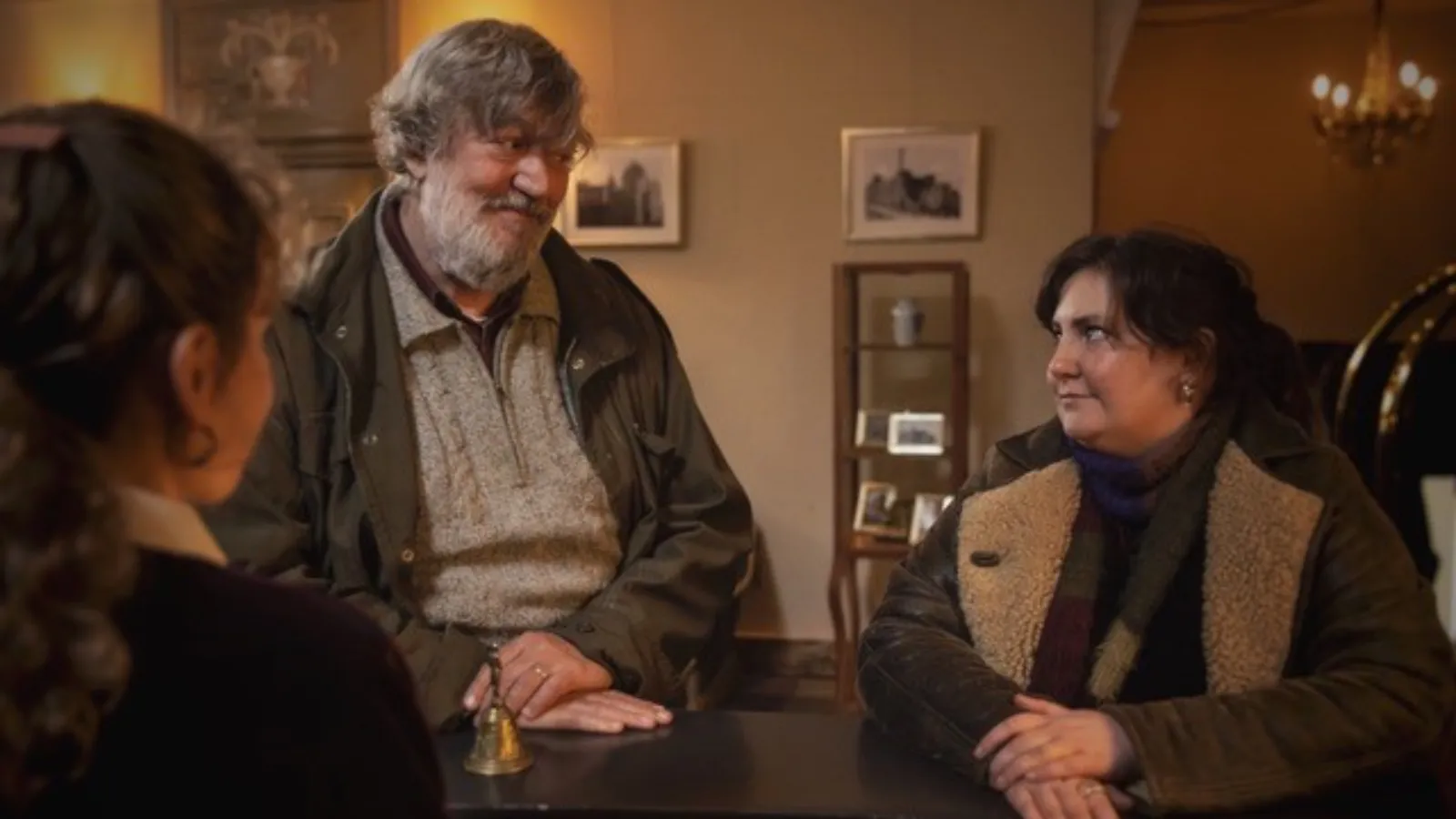Film Review: Treasure
Film
Treasure
Director: Julia von Heinz
Seven Elephants GmbH and Good Thing Going Productions
In Theaters: 06.14
When combining comedy and tragedy, there are multiple factors to consider. The first is to ask the simple question: why? If writer/director Julia von Heniz found any kind of an answer to that question when developing the Holocaust-based father/daughter road trip saga Treasure, it’s one that certainly didn’t translate to the screen.
In the early 1990s, New York journalist Ruth Rothwax (Lena Dunham, Girls, Sharp Stick) decides to take a trip to Poland to Łódź, where her parents grew up, met and lived together before surviving Auschwitz. Ruth’s widowed father, Edek (Stephen Fry, Jeeves and Wooster, Wilde) doesn’t want her to visit Poland alone, and insists on tagging along. They hire a guide, Stephan (Zbignew Zamachowski, the Three Colors trilogy), to drive them around. Ruth is eager to see the sights and learn everything she can about her heritage and family history, while Edek prefers to let the past stay in the past. Plenty of personality clashes ensue as Edek is more interested in partying with other tourists than visiting landmarks, leading Ruth to feel frustrated by his lack of interest in sharing his memories. Edek, in turn, doesn’t understand why the recently-divorced Ruth wants to focus on the past instead of fixing the problems of her life in the present, and is all too eager to point out those problems. As the trip leads up to a tour of Auschwitz, the two must learn to communicate and to reconcile their differences.
Treasure is based on the novel Too Many Men by Lilly Brett, and the most significant change is that in the book, Ruth and Edek are accompanied on their trip by the ghost of Nazi war criminal Rudolf Höss. While it’s not a bad idea to ditch this element, he still might have only been the second most off-putting on this trip. To say that Ruth is difficult to like is akin to saying that concrete is difficult to chew. Whether it’s her constant expectation that the native Poles be fluent in English, or her obliviousness to the idea that revisiting all of the locations related to her father’s first hand experiences with the Holocaust might be just a little triggering or unpleasant, the self-absorbed cluelessness that Ruth exhibits throughout the film is staggering. This is a woman who gets petulant because her Auschwitz survivor father doesn’t want to ride there on a train, and the movie is almost over before she even tries to grasp why he might feel that way.
While Edek isn’t without his faults, the screenplay by von Heinz and John Quester (And Tomorrow The Entire World) seems to either assume that they are all self-evident, or is simply so intent on focusing on Ruth to bother to showing us. We learn that Edek and his wife were emotionally distant parents only from Ruth’s dialogue, and we’re given little reason to put any stock in her viewpoints on anything that it’s hard to find sympathy or understanding. When Edek finally breaks down, overcome by memories, Ruth finally displays just enough empathy to make the character work for almost a full 12 minutes, which is when the movie finally works its way up to being hopelessly maudlin. As for the comic side of things, it comes from Edek’s imperfect English, as he embarrasses Ruth by repeatedly referring to a “daughter-father trip” instead of “father-daughter,” says “super-grandfather” instead of “great-grandfather,” or inserts unnecessary definite articles into his speech, referring to “traveling to the Washington D.C” or even “having the sex.”
Dunham’s performance is awkward and uncomfortable to watch, with stilted line readings that seem surprisingly amateur for someone with more than a decade of Hollywood notoriety. It may be that Fry is trying to overcompensate for Dunham’s listless performance with his hammy theatricality, but he only manages to ensure that it’s a spectacularly awful screen pairing. Zamachowski is believable if utterly forgettable, and Tomasz Wlosok (Kleks Academy, Green Border) as Tadeusz, a young hotel doorman whom Ruth hires as a translator, nearly ruins the dynamic of the movie by being both natural and likable.
Treasure has scattered moments that elicit a certain degree of genuine emotion, though most of them come not from the story or characters, but simply from seeing the locations. If you want to see a mismatched pair of Jewish relatives travel through Poland, wait until Jesse Eisenberg’s Sundance darling A Real Pain comes out in October and just steer clear of Ruth and Edek. This flat, sluggish and vapid exercise in futility is one Treasure that would have been better left buried forever. – Patrick Gibbs
Read more film reviews:
Film Review: Inside Out 2
Film Review: Tuesday
